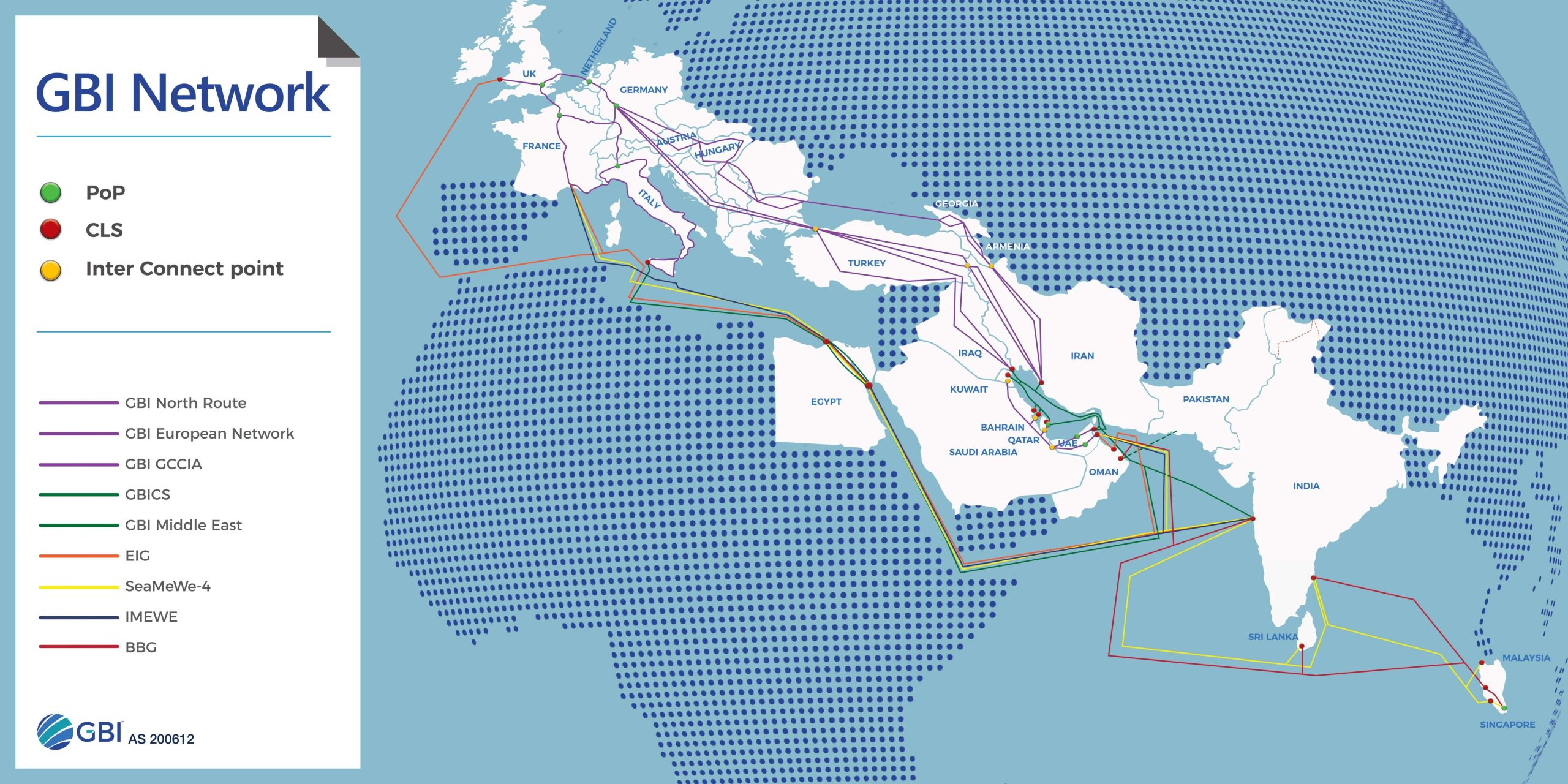GBI’s internet network connects the Gulf to Europe through Iraq

Baghdad (IraqiNews.com) – Gulf Bridge International (GBI), a global cloud, connectivity, and content enabler with headquarters in Qatar, has announced an upgrade to the North Route of its undersea cable-mesh Smart Network that would link the Gulf to Europe through Iraq. This will increase the variety of GBI’s routes and strengthen the region’s internet connectivity’s resilience.
By totally avoiding the Arab peninsula, connecting through Iraq considerably reduces latency, with latency between Europe and the Gulf data centers being cut by 40ms.
Additionally, by diversifying the North Route’s current routes via Iraq, redundancy is created, ensuring that users may still connect in the event of a failure. This is essential for maintaining mission-critical activities.
“By diversifying our North Route so that it now also passes through Iraq, we are providing that assurance,” said Brendan Press, CCO of GBI.
The overall robustness of GBI’s Smart Network is boosted by the enhancement of the North Route. This also includes the South Route, which travels via the Mediterranean and Suez Canal to link the Gulf with Europe.
“When you consider that we also have our South Route that runs through Egypt, we can confidently say our Smart Network is playing a critical role in keeping the world connected and is helping to propel the region into a global connectivity hub,” said Press.

According to GBI, the decision is a positive step for the Gulf region’s internet service providers (ISPs), cloud, gaming, and telecommunications industries as data demands on data cables hit all-time highs, mission-critical applications demand increased bandwidth, and new low latency-dependent technologies like 5G, IoT, and AI enter the mainstream. Additionally, it will aid in preparing the region for the expected increase in internet traffic leading up to the World Cup 2022 in Qatar, which begins in November.
“It’s an adage old as time: don’t put all your eggs in one basket. Companies must shift away from over reliance on the same cable routes as that can produce bottlenecks and potential outages. They must work with providers that can provide diversification and, therefore, assurance that connectivity will always be available whatever the situation,” concluded Press.
